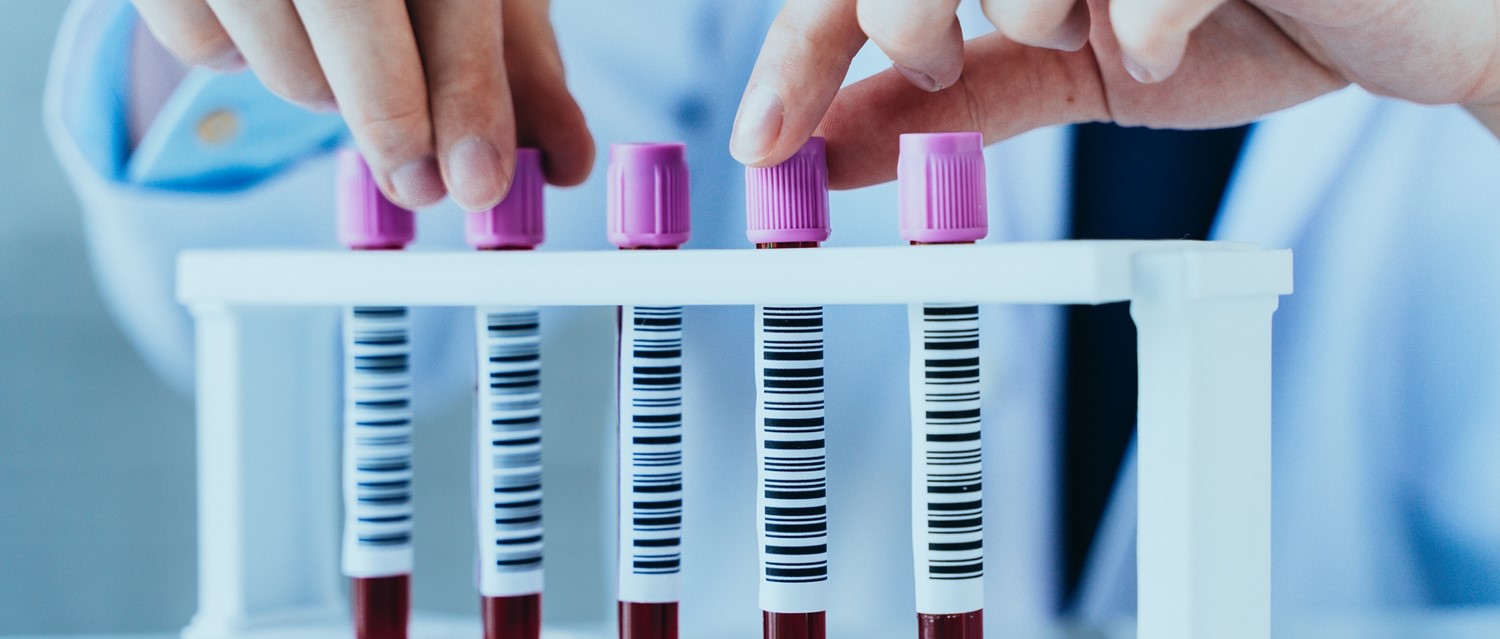
What does a full blood count show us?
Peer reviewed by Dr Colin Tidy, MRCGPLast updated by Lynn StephenLast updated 26 Feb 2026
Meets Patient’s editorial guidelines
- DownloadDownload
- Share
- Language
- Discussion
- Audio Version
A full blood count is often included in many common blood tests. These can be used by doctors to help diagnose a range of health issues, or to help them build an overall picture of your health. What does a full blood count show? And why can it be a useful diagnostic tool?
In this article:
Video picks for Blood tests
There are many reasons why you may need to have a blood test. But it's worth remembering that there are limits to what a blood test can tell you about your health.
Continue reading below
What is a full blood count?
Common blood tests may include something called a full blood count (FBC), sometimes referred to as a complete blood count (CBC). This is used by your doctor to establish the number, size, and other details of red blood cells, white blood cells, and platelets - which play a major part in blood clotting - you have circulating in your system.
However, the tests' title can be misleading to people, who may assume that this is a thorough, extensive indication of your state of health.
Dr Carol Cooper, GP, media doctor and medical journalist explains that there is no test that can tell you that nothing is wrong with a person.
"You could take an armful of blood and you still couldn't do that," she says.
What is tested in a full blood count?
Back to contentsInstead, if your full blood count indicates that a certain blood cell is abnormally high or low, this may suggest infection, anaemia, or other more serious diseases. Depending on the results, your doctor may then request more tests to confirm a diagnosis.
What is a normal blood count?
The normal ranges for a full blood count can vary, depending on factors such as your age, sex, and whether you have other health conditions.
There are also many things the FBC measures, but in general, it includes results for these tests with normal ranges:
White blood cell count (WBC) - 4,000 to 10,000 cells per microlitre (mcL) (4.0 - 10 x109/L).
Red blood cell count (RBC) - 4.0 to 5.4 million cells per mcL (4.0-5.4 x1012/L) for women or 4.5 to 6.1 million cells per mcL (4.0-6.1 x1012/L)f or men.
Average size of your red blood cells (MCV) - 80 to 100 femtolitres (fL).
Platelet count - 150,000 to 400,000 cells per mcL (150 - 400 x109/L).
Average platelet size (MPV) - 7.0 fL to 9.0 fL.
Can a full blood count detect cancer?
Results of a full blood count can help towards a cancer diagnosis:
Having fewer red blood cells than normal - can be a sign of anaemia. This is usually not caused by cancer, but it's a possible sign of bowel or stomach cancer.
Too many white blood cells (leucocytosis) - very rarely can be a sign of leukaemia, a type of blood cancer.
Too many platelets (thrombocythaemia) - this is linked with an increased likelihood of there being a cancer somewhere in the body, although it does not confirm it.
Other common tests
Other regularly ordered tests include measuring kidney or liver function, blood glucose (sugar levels), or hormone testing, most commonly thyroid hormone. Raised readings on other tests, called ESR and CRP, indicate that there's inflammation going on somewhere - which could be due to anything from a mild viral infection to an autoimmune condition such as rheumatoid arthritis or even, more rarely, to cancer.
These, however, are separate from a full blood count. Doctors also often test for levels of vitamin D in the blood, as many people become deficient in this so-called sunshine vitamin in the winter months. This is only available in some parts of the country. Cholesterol tests to measure the levels in the blood are also commonly used and can provide a useful insight into a person's chance of heart attack or stroke.
Continue reading below
Taking blood
Back to contentsIf you've been referred for a blood test for the first time, you may feel anxious. Rest assured it is a very straightforward procedure, which often takes under a minute to perform.
Blood is usually taken in a GP practice or at your local hospital. Normally a nurse or phlebotomist will draw the blood from your inner arm, using a needle. For most, the procedure is not painful, and only lasts a short time.
To help the flow of blood, the nurse will often tie a band around the top of your arm, and may ask you to clench and release your fist.
It's important to ask your doctor when they order the test whether it's a fasting test. If this is the case, you should not eat or drink anything other than water for 8-12 hours beforehand as this may affect the result of the test. Check the timing with your doctor.
Test limitations
Back to contentsSome people may welcome the idea of a blood test and the information or potential reassurance it may appear to offer. Others may find themselves feeling anxious or apprehensive about the potential results if a doctor requests a blood test after a consultation.
It's important to remember that blood tests will only give a snapshot of your levels depending on the test requested, and cannot provide full reassurance of general health.
In addition, while some blood tests may flag up significant problems, blood tests are routine and being prescribed a test does not indicate that your doctor suspects anything serious.
Continue reading below
Building a clearer picture
Back to contentsIn fact, when you are referred for a test, you will already have gone through two stages of diagnosis that are equally as important as measuring levels in the blood.
Cooper explains that the doctor will initially talk with you, to find out about your symptoms and lifestyle. Then they will examine you for additional clues as to what might be causing your symptoms.
"Requesting a blood test is simply part of the investigation process - but tests are simply tests, they don't give the whole picture," she adds.
If you are worried about why a test has been ordered or want more information about your state of health, it's important that you are open and thorough when talking with the doctor during your appointment. To help, it's worth writing a list of symptoms and concerns before an appointment takes place.
Health anxiety
Back to contentsWe all worry about our health from time to time. But for some people, these concerns become overwhelming. It is not uncommon for people to request blood tests for reassurance, or to worry about symptoms despite having a doctor's examination.
It's important to remember that a blood test cannot provide complete reassurance about your state of health, and to trust your doctor to make a decision as to whether a test is required.
If you find yourself becoming overly anxious about your health, or about a blood test you have been prescribed, talk with your doctor. They will be able to provide support and guidance.
Patient picks for Blood tests

Tests and investigations
NHS to roll out world-first blood test for cancer
People with lung and breast cancer – two of the most common forms of cancer - will be offered a ‘revolutionary’ new blood test, which will help speed up and personalise their treatment.
by Lawrence Higgins

Tests and investigations
How to prepare for a blood test
A blood test is one of the most common medical tests and is a good way to get a picture of your overall health, which helps medical professionals assess health and disease. Most people will likely need a blood test at some point in their lives so it's important to know how to prepare.
by Andrea Downey
Continue reading below
Article history
The information on this page is peer reviewed by qualified clinicians.
Next review due: 26 Feb 2029
26 Feb 2026 | Latest version
17 Sept 2020 | Originally published
Authored by:
Gillian Harvey

Ask, share, connect.
Browse discussions, ask questions, and share experiences across hundreds of health topics.

Feeling unwell?
Assess your symptoms online for free
Sign up to the Patient newsletter
Your weekly dose of clear, trustworthy health advice - written to help you feel informed, confident and in control.
By subscribing you accept our Privacy Policy. You can unsubscribe at any time. We never sell your data.